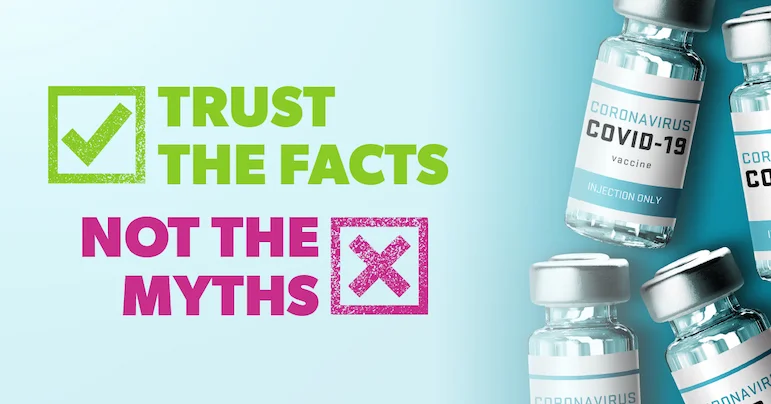We have Opened a New Hospital! Click here to learn more.


Below are some general questions and answers about the COVID-19 vaccine.
As more information becomes available, and local and state vaccine distribution plans are formalized, we will update this page and provide more information about where to get specific details about the vaccine and its availability.
Currently, two vaccines are authorized and recommended to prevent COVID-19:
As of December 28, 2020, large-scale (Phase 3) clinical trials are in progress or being planned for three COVID-19 vaccines in the United States:
Source: CDC.gov
The state of Arizona has coordinated distribution of available doses throughout the state, in conjunction with the federal government. Because the vaccines will likely be available only in limited quantities, vaccines will be allocated to the individual counties for administration. Maricopa County has designated several sites across the county that will be utilized to administer vaccines in this first wave.
People who are at highest risk for exposure to COVID-19 and serious disease will be prioritized, including health care workers, followed by essential workers and people over 65 or people with an underlying condition that puts them at risk for serious illness with COVID-19. However, vaccine availability may also dictate further prioritization within these groups, for example, health care workers with direct patient contact vs. essential workers with lower risk for exposure to infectious material.
Yes, the goal is to administer the initially limited supply of vaccines to those most at risk, following CDC guidelines for a phased rollout.
Yes, you should still get vaccinated if you have had COVID-19. Even if you have already recovered from COVID-19, it is possible that you could be infected with the virus that causes COVID-19 again. The vaccine is the only way to ensure immunity.
If you were treated for COVID-19 with monoclonal antibodies or convalescent plasma, you should wait 90 days before getting a COVID-19 vaccine. Talk to your doctor if you are unsure what treatments you received or if you have more questions about getting a COVID-19 vaccine.
Source: CDC
Each vaccine sponsored by HHS’s Operation Warp Speed uses a slightly different approach with the same goal: to induce an immune response in the body against SARS-CoV2, the virus that causes COVID-19. The first two vaccines likely to be available, from Pfizer and Moderna, are mRNA vaccines.
mRNA vaccines contain a message from the virus that causes COVID-19 that gives our cells instructions for how to make a harmless protein that is unique to the virus. After our cells make copies of the protein, they destroy the genetic material from the vaccine. Our bodies recognize that the protein should not be there and build immune cells that will remember how to fight the virus that causes COVID-19 if we are infected in the future.
Most of the vaccines will require two shots, with the second shot received 21 to 28 days after the first, depending on the vaccine.
Producing a vaccine against COVID-19 has been the top priority of scientists and governments around the world to help bring an end to the pandemic. With the coordinated and enormous investment of resources, development of these vaccines has been accelerated, all while maintaining standards for safety and efficacy.
Rather than eliminating steps from traditional vaccine development timelines, steps are proceeding simultaneously, such as scaling up manufacturing while safety and efficacy data are being collected. Pfizer recently completed their clinical trial, which included more than 43,000 people.
Before receiving approval for emergency use, pharmaceutical companies must provide evidence that their vaccines are safe. A team of experts from the FDA, CDC’s Advisory Committee on Immunization Practices and other agencies will review the data on safety and efficacy before recommending them for use. Additionally, a multidisciplinary team was established with ADHS, including Valleywise Health, to review the available data to ensure that any vaccine made available to our team and patients will be safe and effective.
Pregnant women and women trying to conceive were not included in the first round of clinical trials for the COVID-19 vaccines, so no safety data is currently available for these groups.
Health care professionals and researchers are still learning about COVID-19 and new information is discovered nearly every day that is helpful in the fight against this disease. Because COVID-19 is still a relatively new virus, it is difficult to know exactly how the virus affects the body long-term and how long immunity from natural infection lasts.
Therefore, it is also difficult to predict how long a vaccine will provide protection against the virus. As the vaccines are administered and new information is gathered, additional data about how long it will protect against the virus will be made available
This is not known at this time. Scientists are continuing to collect data about long-term immunity to SARS-CoV2. Regarding vaccination, we won’t know how long immunity lasts until we have a vaccine and more data on how well it works.
Based on our experience with other vaccines and early data from the COVID-19 vaccines, it is likely that people who are vaccinated will have enough immunity where they will not pass the virus to others if exposed, but this is not 100 percent certain.
Yes. While experts learn more about the protection that COVID-19 vaccines provide under real-life conditions, it will be important for everyone to continue using all the tools available to us to help stop this pandemic, like covering your mouth and nose with a mask, washing hands often, and staying at least 6 feet away from others. Together, COVID-19 vaccination and following CDC’s recommendations for how to protect yourself and others will offer the best protection from getting and spreading COVID-19.
Experts need to understand more about the protection that COVID-19 vaccines provide before deciding to change recommendations on steps everyone should take to slow the spread of the virus that causes COVID-19. Other factors, including how many people get vaccinated and how the virus is spreading in communities, will also affect this decision.